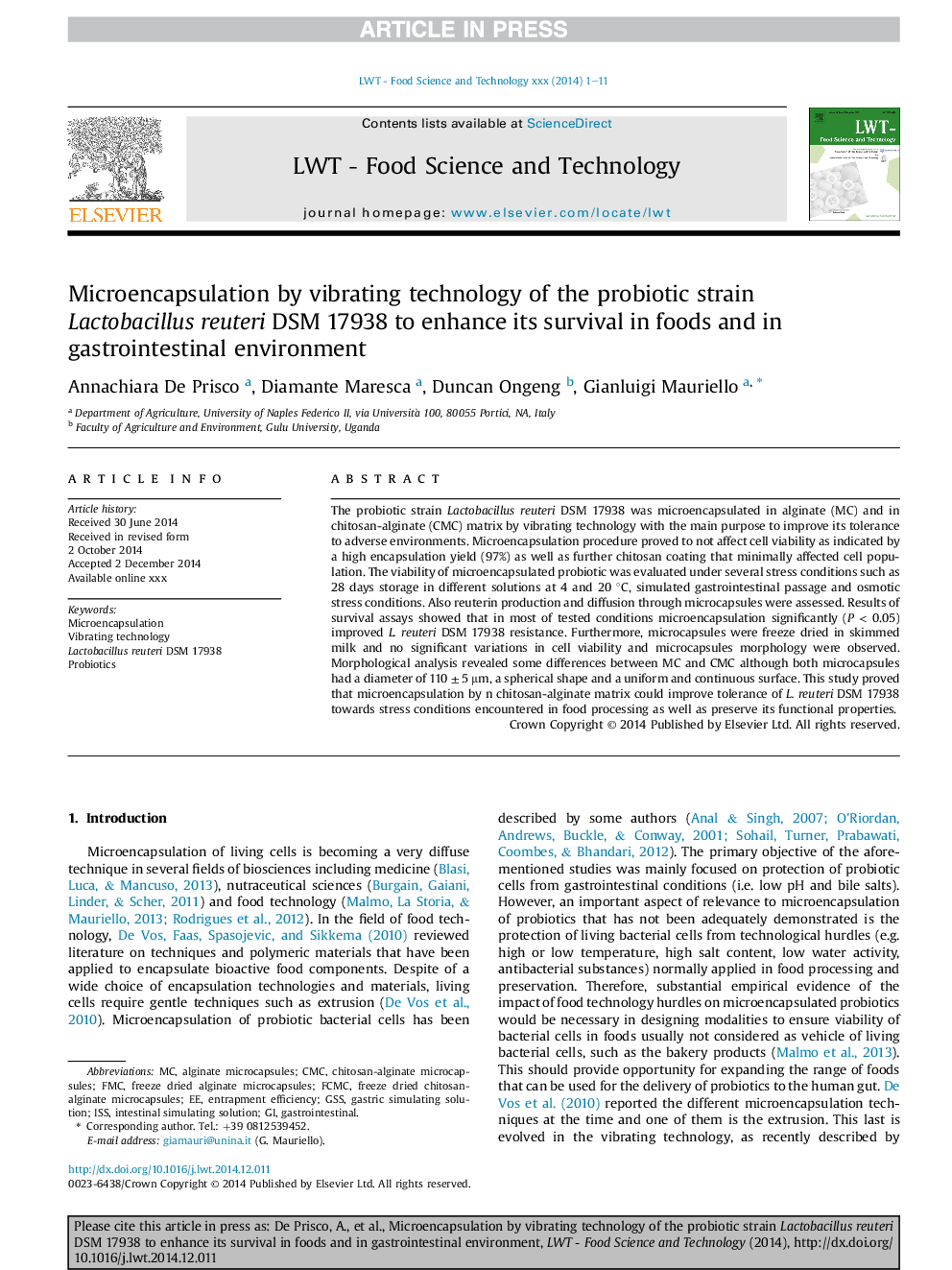| Article ID | Journal | Published Year | Pages | File Type |
|---|---|---|---|---|
| 6401176 | LWT - Food Science and Technology | 2015 | 11 Pages |
Abstract
The probiotic strain Lactobacillus reuteri DSM 17938 was microencapsulated in alginate (MC) and in chitosan-alginate (CMC) matrix by vibrating technology with the main purpose to improve its tolerance to adverse environments. Microencapsulation procedure proved to not affect cell viability as indicated by a high encapsulation yield (97%) as well as further chitosan coating that minimally affected cell population. The viability of microencapsulated probiotic was evaluated under several stress conditions such as 28 days storage in different solutions at 4 and 20 °C, simulated gastrointestinal passage and osmotic stress conditions. Also reuterin production and diffusion through microcapsules were assessed. Results of survival assays showed that in most of tested conditions microencapsulation significantly (P < 0.05) improved L. reuteri DSM 17938 resistance. Furthermore, microcapsules were freeze dried in skimmed milk and no significant variations in cell viability and microcapsules morphology were observed. Morphological analysis revealed some differences between MC and CMC although both microcapsules had a diameter of 110 ± 5 μm, a spherical shape and a uniform and continuous surface. This study proved that microencapsulation by n chitosan-alginate matrix could improve tolerance of L. reuteri DSM 17938 towards stress conditions encountered in food processing as well as preserve its functional properties.
Keywords
Related Topics
Life Sciences
Agricultural and Biological Sciences
Food Science
Authors
Annachiara De Prisco, Diamante Maresca, Duncan Ongeng, Gianluigi Mauriello,
